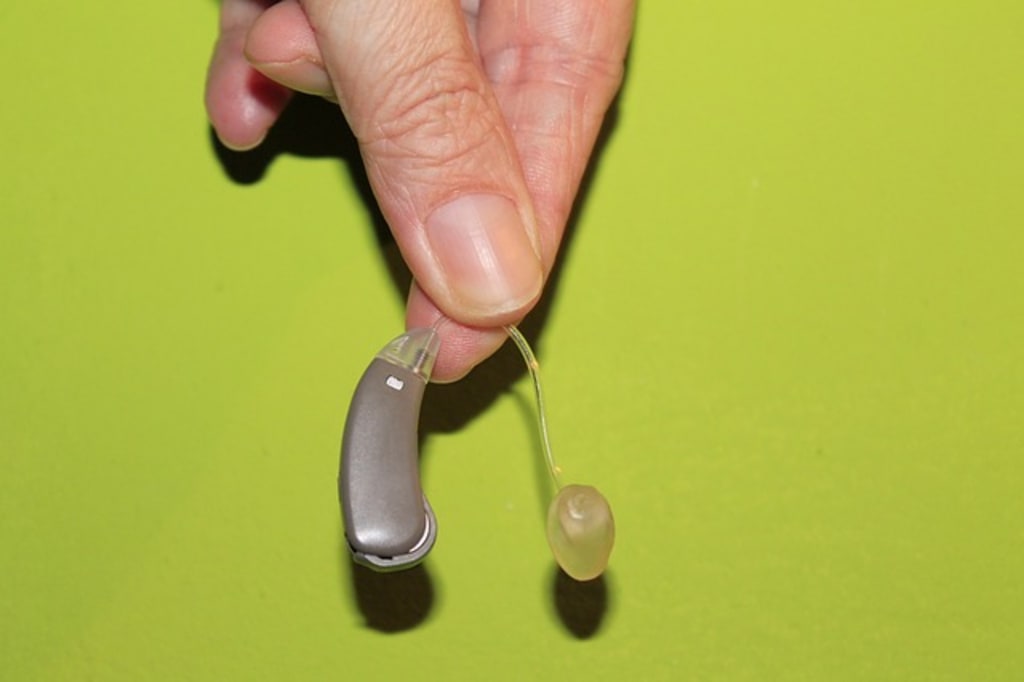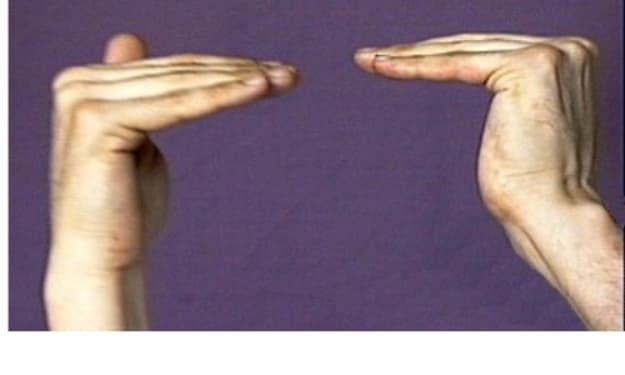The Harsh Truth Behind Those "Hearing for the First Time" Videos
You may have seen those viral videos of the baby getting their first hearing aid, or someone getting their cochlear implant activated.

We watch the little baby getting emotional when its new hearing aid is turned on and is "hearing mommy's voice for the first time". There's been other viral videos of people getting their cochlear implant activated for the first time and they break down crying when they're hearing sounds.
The response of many commenters are "awwws", heart emojis, and comments along the lines of "now they'll be normal" (my interpretation mind you).
But these “inspiration porn” videos, as I call them, doesn’t show what happens once the camera turns off. I'm Deaf with a Cochlear Implant and I'm going to share the truth and how I (and many others) feel about these videos.
Here's what many people do not realize:
It's not an "Instant Fix"
We can’t just put it on and instantly hear and understand everything.
It takes a lot of time and adjustment for our brains to learn to translate the sounds from a hearing aid and electronic signals from a cochlear implant (C.I.) into sounds that we can recognize. People have to go through a lot of technical adjustments to adjust how we’re hearing. Pitches and loudness have to be adjusted every time.
I’ve had one C.I. for 10 years until an internal failure (long story). I was reimplanted with the newest version and even though I’ve learned to hear well with the first one, I had to relearn everything all over again.
It's not a Cure
Once we take the technology off, we're deaf again.
We're deaf when we sleep, when we shower, swim (unless we have the waterproof case), or any other time it's not on.
We're also deaf when our battery dies, there's been instances we've forgotten our backup batteries, so we've had to go without sound.
It will Never Match Natural Hearing
Hearing aids just amplifies sound to the point where our "broken" ears can hear it. Hearing aids cannot repair or replace the missing frequencies that you're missing.
With a C.I. it is electronically produced hearing. As great as this technology is and it’s improving all the time, it will never match the complexity and range of natural hearing.
For those of us who are prelingually deaf, we will never know what true hearing is. For those late-deafened, they never will be hearing like they used to again. Even though it’s electronic hearing, after much training and adjusting, some people can get pretty close to how they were hearing before.
It Takes a lot of Training
Even some C.I. users after several years wonder why they’re not hearing well.
It takes a lot of training to hear. You don’t need to attend aural therapy sessions by a specialist to train to hear. Play the radio or TV in the background while you go about your normal routine. Get an audiobook and print version of the same book and read along with the voice to learn different speech patterns. Have someone read the newspaper or magazine out loud next to you.
The saying “you only get out what you put in” stands true here.
Here's a great book called "Made to Hear".
To the Deaf Community it's Annoying
Think about this, you have freckles that no one in your family has but you're fine with them, you have a job, social life, and so on.
Yet your family and friends keep sending you videos of other people with freckles or even cures for it, saying "look they're just like YOU, they're getting fixed!"
It's bound to get annoying. Especially when you believe your freckles aren't an abnormality.
See the picture now?
Sharing these videos of "getting fixed" implies that you believe that there's something wrong with your Deaf or hard of hearing relative or friend.
Geez, thanks for that.
I'd rather get videos and articles about my job field, my hobbies and interests, jokes and memes, and so on, instead of being reminded that's all you see me as - Deaf.
Read "Deaf in America: Voices from a Culture" to understand the Deaf Community more.
Final Thoughts
So those people who think that baby or that new C.I. user is understanding what is said, or even recognizing the noise right off the bat is sorely wrong.
When that video turns off, there is a lot of work ahead for that new user. Learning to decipher sounds into meaning, a lot of fatigue, headaches and its an emotional rollercoaster.
It does not help at all when the general public, and even family members complain "why are you NOT HEARING ME!", or "You could hear me fine yesterday", and a myriad of other insensitive questions.
To the new hearing aid or C.I. user: Be patient; enjoy the little “a-ha” moments; practice listening wherever you are; don’t forget to escape to the quietness of silence when things get overwhelming; and enjoy your “new ear”.
To their family members and friends: Be patient, help with identifying sounds; have realistic expectations; and enjoy their hearing “progressions”.
To everyone else: Is it really any of your business? No one owes you their medical history.
So, please stop sharing those viral videos, especially with your Deaf and hard of hearing family and friends.
About the Creator
Tracy Stine
Freelance Writer. ASL Teacher. Disability Advocate. Deafblind. Snarky.
Enjoyed the story? Support the Creator.
Subscribe for free to receive all their stories in your feed. You could also pledge your support or give them a one-off tip, letting them know you appreciate their work.






Comments
There are no comments for this story
Be the first to respond and start the conversation.